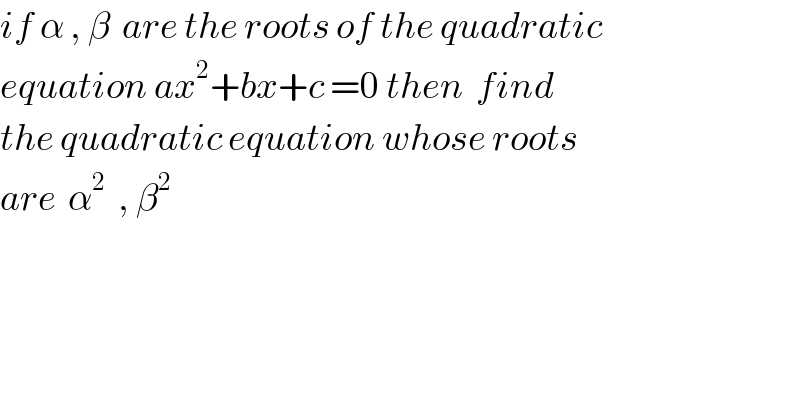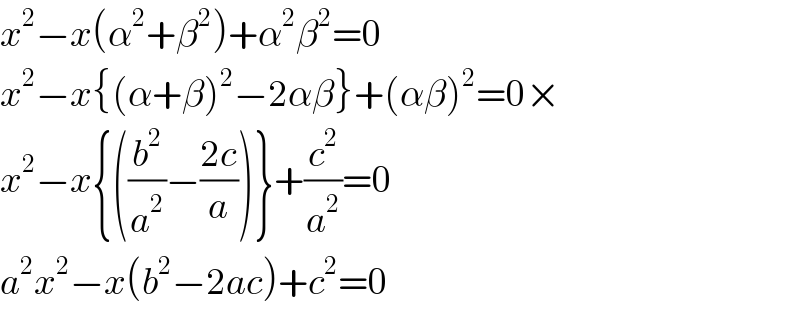
Question and Answers Forum
Question Number 37139 by nishant last updated on 09/Jun/18

Answered by tanmay.chaudhury50@gmail.com last updated on 09/Jun/18

Answered by Joel579 last updated on 09/Jun/18
![α + β = −(b/a), αβ = (c/a) The new quadratic equation: x^2 − (α^2 + β^2 )x + α^2 β^2 = 0 x^2 − [(α + β)^2 − 2αβ]x + (αβ)^2 = 0 x^2 − ((b^2 /a^2 ) − ((2c)/a))x + (c^2 /a^2 ) = 0 a^2 x^2 − (b^2 − 2ac)x + c^2 = 0](Q37145.png)
| ||
Question and Answers Forum | ||
Question Number 37139 by nishant last updated on 09/Jun/18 | ||
 | ||
Answered by tanmay.chaudhury50@gmail.com last updated on 09/Jun/18 | ||
 | ||
| ||
Answered by Joel579 last updated on 09/Jun/18 | ||
![α + β = −(b/a), αβ = (c/a) The new quadratic equation: x^2 − (α^2 + β^2 )x + α^2 β^2 = 0 x^2 − [(α + β)^2 − 2αβ]x + (αβ)^2 = 0 x^2 − ((b^2 /a^2 ) − ((2c)/a))x + (c^2 /a^2 ) = 0 a^2 x^2 − (b^2 − 2ac)x + c^2 = 0](Q37145.png) | ||
| ||